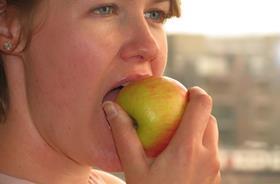
Research conducted by Cranfield University and funded by Defra, the UK department for the environment, food and rural affairs, has suggested that increasing the availability of lower grade fresh fruit and vegetables may not be the way to boost consumption.
A key issue, according to lead researcher Leon A Terry, is that consumers may not fully understand price promotions, which can be as high as 50-80 per cent in some categories.
Suppliers surveyed feared that promotions were destroying the price structure of the whole fresh produce category and, in fact, rendering those very promotions less effective.
They also believed that multi-buy promotions and changing pack sizes were confusing consumers, warning of 'promotion fatigue'.
The research equally found that employment status was an important factor in purchases of certain products, including apples, potatoes and strawberries.
Those working under eight hours, unemployed or in full-time education bought significantly lower quantities of standard and value lines of these products than those in full-time employment and retirement.
However, the link between purchases of lower-grade fruit and socio-economic groupings was found to be less significant than had been presumed.



